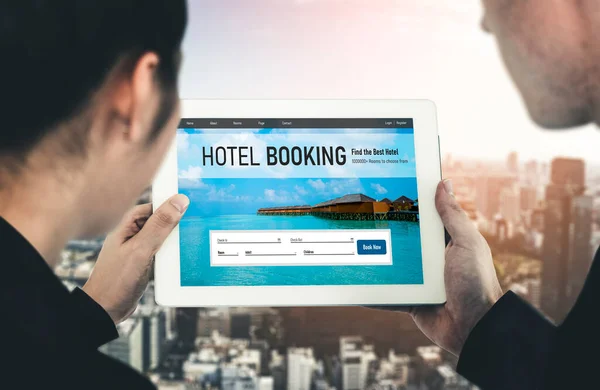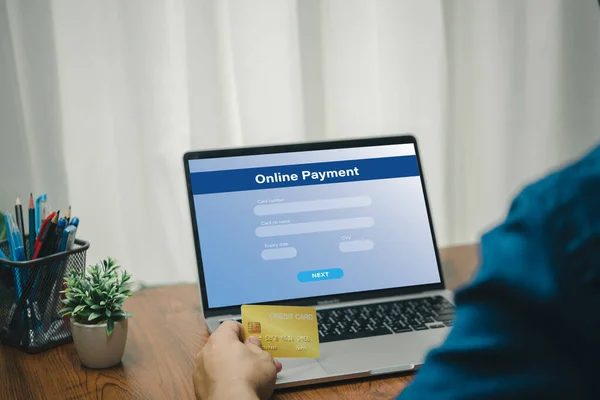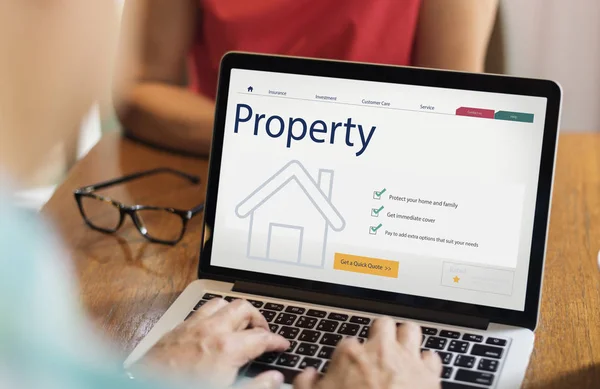Planning a vacation should be exciting, not stressful. You’re dreaming of that perfect getaway — maybe a cozy cabin in the mountains or a beachfront condo with ocean views. But as you scroll through rental listings, there’s something you need to know: scammers are out there, and they’re getting craftier by the day.
According to the Federal Trade Commission, consumers reported nearly 50,000 vacation rental scam complaints in 2024, with losses totaling more than $10 million. That’s just the reported cases — many more people probably got burned and never filed a complaint.
The good news is that most scams follow predictable patterns, and once you know what to look for, you can spot trouble from miles away. Here’s a list of 15 red flags that should make you think twice before booking that rental.
Prices That Seem Too Good to Be True

If a deal seems too good to be true, it probably is, with scammers often luring victims with exceptionally low rates and prices drastically lower than comparable rentals in the same area. Think about it like finding a designer handbag at a garage sale for five bucks — sure, it could happen, but it’s more likely someone’s trying to pull a fast one.
Fraudsters often target the most vulnerable in their schemes by offering well-below-average prices on fake rentals. Before you get swept away by an amazing bargain, take a few minutes to compare similar properties in the same area and see if the price makes sense.
Requests to Pay Outside the Platform

A hallmark red flag of a vacation rental scam is a host who attempts to lure you off that protected platform with the promise of a discount or deal, as Airbnb and Vrbo hosts are not permitted to ask potential customers to circumvent the system and contact them off-site. It’s like someone asking you to meet in a dark alley instead of a well-lit coffee shop — there’s usually a sketchy reason behind it.
When you book with scammers directly and pay through digital wallets like Venmo or CashApp instead of the rental platform, you’ll be out of money and face a potentially ruined vacation. Legitimate hosts understand that platform protections benefit everyone, so they won’t try to talk you out of using them.
Like Travel Pug’s content? Follow us on MSN.
Poor Quality or Stolen Photos

Watch for listings that only show photos of the region, surrounding areas, or only have one or two interior shots, and if you’re still unsure, a good host will accommodate any request for additional photos. Professional scammers have gotten better at this, but many still use obviously fake or stolen images that look like they came from a luxury magazine.
Scammers are known to steal images from vacation websites to create an appealing yet entirely fake listing. You can actually do a reverse Google image search on suspicious photos — if the same image pops up on multiple unrelated sites, you’ve caught someone red-handed.
No Reviews or Suspicious Review Patterns

Be wary of listings that have no reviews or only glowing reviews—especially if those reviews seem robotic or repetitive, and check the dates of the reviews since if most were written within days of each other, they might be fake. Real vacation rentals develop a history over time, with a mix of good and maybe not-so-perfect reviews from actual guests.
A legitimate vacation rental should have a history of reviews, and if there are no reviews, or if the reviews are suspiciously glowing or all negative, take it as a red flag. It’s like reading restaurant reviews — if every single one is five stars and sounds like it was written by the same person, something’s fishy.
Vague or Incomplete Property Information

Listings with limited photos, details, and reviews, or that seem ‘too good to be true’ should raise red flags, as listings that lack detailed descriptions, clear photos, or specific amenities might be fraudulent since legitimate listings typically provide comprehensive information. Think of it like buying a car where the seller won’t let you look under the hood or take a test drive.
Real property owners are proud of their places and want to show them off with detailed descriptions, plenty of photos, and clear information about what’s included. If you can’t talk to an actual person, or they don’t want to answer your questions about the property or area/local attractions, that’s another warning sign.
Like Travel Pug’s content? Follow us on MSN.
Pressure to Book Immediately

If you’re considering a vacation rental and the owner sends you a message that you must complete the transaction immediately because they have multiple people interested, consider this to be a bit of a red flag. Scammers love to create artificial urgency because it stops you from thinking things through or doing your homework.
Don’t allow yourself to be rushed into a decision, especially if it seems too good to be true. Legitimate hosts understand that booking a vacation rental is a big decision, and they’re usually happy to give you time to think it over or answer additional questions.
Unusual Payment Methods

Never wire money or use a prepaid debit card to pay for a vacation rental, and scammers often ask for payment via wire transfer, prepaid cards, or other untraceable methods. It’s like handing cash to a stranger on the street and hoping they’ll remember to give you something in return later.
Scammers often ask for payment via wire transfers, cash, or cryptocurrency since these methods are difficult to trace and recover if something goes wrong. Credit cards offer protection that these other payment methods simply don’t provide, so stick with what keeps you safe.
Communication Red Flags

A message that’s riddled with spelling mistakes and poor punctuation is a red flag waving wildly, and if the person inquiring seems to have the language skills of a cat walking across a keyboard and keeps repeating themselves like a broken record, take a step back. While not everyone writes perfect English, especially international hosts, there’s a difference between occasional mistakes and messages that make no sense.
Poor communication—especially if the person is evasive or provides inconsistent information—can be a warning sign. Trust your gut — if something feels off about how someone communicates, it probably is.
Like Travel Pug’s content? Follow us on MSN.
Inaccurate Property Descriptions

Be wary of inaccurate property descriptions in your communication with guests, such as if the guest inquiring is talking about a city apartment and your property is a 5-bedroom villa, which could indicate they’re sending mass emails to property managers. This works both ways — if a host describes your mountain cabin as a ‘downtown penthouse,’ they clearly haven’t done their homework.
If an inquirer has written much more than you expected for an initial email with unnecessary information like their occupation or a long-winded story about why they’re visiting your city, keep them at arm’s length. Real hosts know their properties inside and out and can speak confidently about the details.
No Physical Address or Incorrect Location

Verify the property’s address through online maps, because if the address doesn’t exist or looks incorrect, it’s likely a scam. It’s surprisingly easy to check this — just plug the address into Google Maps and take a look at the street view.
If you can get the address of the home, do a Google Maps search to make sure the property exists, and if the property’s exterior photos and its address don’t match, contact the property owner to ask questions. Scammers sometimes use real addresses but pair them with photos of completely different properties, thinking you won’t bother to check.
Overpayment Requests or ‘Mistakes’

If the guest claims to have paid more than the total price indicated on your website, this should be another warning sign, as overpay vacation rental scams have been happening recently with new hoax guests even using stolen credit cards. This scam works by the ‘guest’ sending more money than required, then frantically asking for a refund on the overpayment before you or your bank can catch on.
Sometimes the scammer sends a fake check or a transfer that won’t clear, leaving you reimbursing them with your own money. If someone claims they accidentally overpaid, that’s your cue to step back and verify everything twice.
Like Travel Pug’s content? Follow us on MSN.
Last-Minute Booking Stories

Scammers often take advantage of late bookings in the hope that you won’t have time to run effective guest screening and security checks. While legitimate last-minute bookings definitely happen — maybe someone’s hotel got overbooked or they decided on a spontaneous getaway — scammers love these situations because they create time pressure.
Of course, sometimes you have to give guests the benefit of the doubt and believe their story, but if the story doesn’t quite add up, use methods to screen guests and don’t be afraid to ask for verification. A little extra caution with rushed bookings can save you a lot of headaches later.
AI-Generated or Generic Images

Although vacation rental owners aren’t prohibited from using AI to create the images used to advertise the property, it’s unethical unless fully disclosed in the listing, and a reputable vacation rental host should be able to show you current, unaltered photos of their property. These computer-generated images are getting scary good, but they often have that too-perfect, magazine-quality look that real vacation rentals rarely achieve.
If the photos are AI-generated, the reality is likely to disappoint since they’re ‘imagined’ by a computer program that creates its final product as a composite stolen from other similar photos. Real hosts are usually happy to provide additional photos from different angles or seasons if you ask.
Requests for Personal Information

Don’t share personal information, including bank account numbers, Social Security Numbers, driver’s license details, and credit card information, as scammers may pressure you by saying it’s for checking your credit score, doing a background check, or reviewing credit reports. Legitimate vacation rental bookings don’t require your Social Security number or bank routing information upfront.
Never give out personal information like account numbers or your Social Security number. Think of it like a first date — you don’t share your life story and financial details right away, and neither should vacation rental bookings require that level of personal information.
Like Travel Pug’s content? Follow us on MSN.
Inconsistent Contact Information

Contact info that differs between the listing and booking is suspicious and should be verified through the platform primarily. If the listing shows one email address but your booking confirmation comes from a completely different one, that’s worth investigating.
Make sure the guest’s name and email address make sense together, and if it seems fishy, it probably is. Legitimate hosts typically use consistent contact information across all their communications, and major platforms like Airbnb and Vrbo have systems in place to verify host identities.
The Bigger Picture: Protection in an Evolving Landscape

The vacation rental scam game has evolved dramatically over the past few years. Fake travel websites have gotten more professional-looking, and there was a time when bad grammar and blurry photos were dead giveaways, but things have changed. Today’s scammers use stolen photos, create convincing websites, and even hack into legitimate accounts to appear more trustworthy.
However, the core protective strategies remain the same: stick to reputable platforms, pay with credit cards, verify property details independently, and trust your instincts when something feels off. If scammers can adapt, so can we, and by staying informed about these red flags, you can enjoy your vacation planning with confidence instead of constantly looking over your shoulder.
More from Travel Pug

- 20 Best Beach Towns in the Carolinas
- 13 Destinations Where Tourists Regularly Regret Their Trip
- 20 Things You Actually Get in First Class
- 20 Small Airports With Aviation Museums
- 20 Places in the U.S. That Are Perfect for a Reset Trip
Like Travel Pug’s content? Follow us on MSN.
